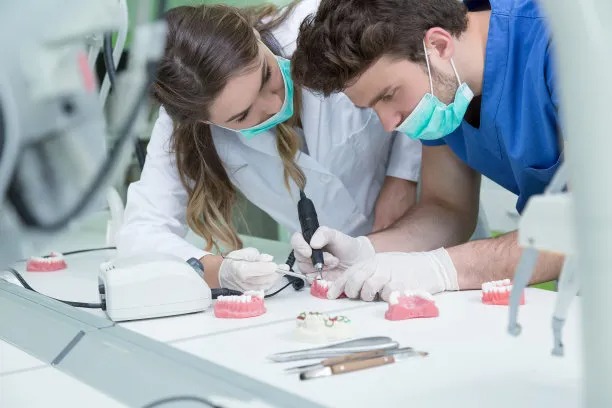Essential Guidelines to Follow Before and After Receiving a Dental Filling Treatment to Ensure Optimal Oral Health
Summary: Dental fillings are essential for restoring teeth affected by decay or damage. However, to ensure the health of your teeth and gums, it鈥檚 crucial to follow specific guidelines before and after the procedure. This article provides essential tips that will prepare you for your dental filling, help you manage your recovery effectively, and maintain optimal oral health. We explore the importance of pre-treatment preparations, post-treatment care, dietary considerations, and regular follow-up checks, all aimed at ensuring a smooth and successful dental filling experience.
1. Importance of Pre-Treatment Preparations

One of the first steps to ensuring a successful dental filling treatment is understanding the significance of pre-treatment preparations. Before your appointment, it is essential to communicate thoroughly with your dentist about any phobias or concerns. This dialogue sets the foundation for a more comfortable experience and allows the dentist to tailor the procedure to your needs.
Additionally, make sure to inform your dentist about your medical history, including any medications you are taking, as this may affect the procedure or the choice of anesthetic. Clear communication helps to avert potential complications and ensures that you receive optimal care.
Lastly, consider arranging transportation for your appointment. Depending on the anesthetic used, you may not be in a condition to drive immediately afterward. Planning ahead reduces stress and ensures that you are safely taken care of following the procedure.
2. Effective Post-Treatment Care Guidelines
The aftercare following your dental filling is just as crucial as preparing for the treatment. Once the procedure is completed, it is important to follow the guidelines provided by your dentist carefully. This may include avoiding hard or sticky foods for a few days to allow the filling to set properly and to prevent damage.
Additionally, pay attention to any sensations or discomfort. It is normal to experience some sensitivity after a filling, but prolonged pain could indicate a problem. In such cases, contacting your dentist promptly is essential to address any potential complications.
Oral hygiene is paramount post-treatment. Resume your regular brushing and flossing routine but be extra gentle around the filled area. Maintaining cleanliness will help prevent further decay and keep your mouth healthy.
3. Dietary Considerations After Filling Treatment
Your diet plays a significant role in your recovery process after receiving a dental filling. Right after the procedure, it is advisable to stick to soft foods and liquids. Foods like yogurt, smoothies, and mashed potatoes can be excellent choices that will not irritate your newly filled tooth.
As you progress into the days following the filling, gradually reintroduce firmer foods, but stay clear of anything extremely hot or cold, as this may cause discomfort due to sensitivity. Instead, opt for lukewarm foods to ease any discomfort while enjoying your meals.
It is also important to limit sugary snacks and beverages, as these can encourage the development of cavities, undermining the purpose of the filling. Maintaining a balanced diet rich in vitamins and minerals contributes to overall dental health, aiding recovery and strengthening your teeth.
4. Regular Follow-Up Checks with Your Dentist
Implementing regular dental check-ups is crucial in monitoring and maintaining the health of your fillings and overall oral health. Schedule your follow-up visits as recommended by your dentist, typically six months after the filling procedure. This allows for timely evaluation and early detection of any issues that may arise.
During these visits, your dentist will examine the filled tooth to ensure the filling is intact and functioning correctly. They can also give additional recommendations for oral care based on the condition of your teeth and gums.
Furthermore, these appointments are an excellent opportunity for preventive measures, as your dentist may recommend professional cleaning or fluoride treatments that benefit both your fillings and your natural teeth.
Summary:
In summary, being well-prepared and following through with appropriate care before and after receiving dental fillings greatly enhances the outcomes of the procedure. By focusing on communication with your dentist, effective post-treatment care, mindful dietary practices, and committing to regular dental visits, you can ensure optimal oral health for years to come.
This article is compiled by Vickong Dental and the content is for reference only.



